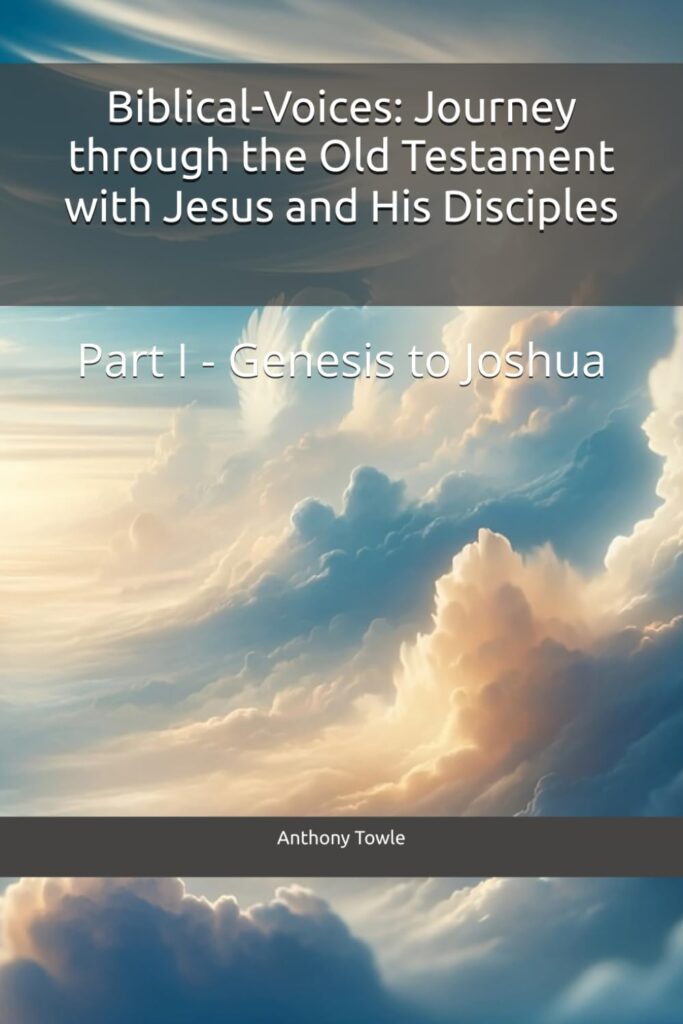Jesus: “In Jeremiah 2:7, the Lord speaks through the prophet Jeremiah to address the people of Israel, reflecting on their journey and their current state. The verse says, ‘And I brought you into a plentiful country, to eat the fruit thereof and the goodness thereof; but when ye entered, ye defiled my land, and made mine heritage an abomination.’”
Peter: “Lord, it sounds like a lament. God gave them everything, and yet, they turned away. Why is it so easy for people to forget God’s blessings?”
Jesus: “Peter, it’s a reminder of the human tendency to take blessings for granted and to forget the source of all goodness when in a state of comfort and prosperity. It speaks to the importance of gratitude and remembering God’s provisions and guidance.”
Andrew: “It’s heartbreaking to think that the land God described as plentiful was defiled by those He intended to bless. How can we ensure we honor God’s gifts and not defile them?”
Jesus: “Andrew, by living lives that reflect God’s love and stewardship. It’s about recognizing everything we have as a gift from God and using it in a way that honors Him and benefits others, not just ourselves.”
John: “This verse seems to emphasize the relationship between the people and the land. Is there a deeper message about how we interact with God’s creation?”
Jesus: “Indeed, John. It teaches us that our relationship with creation should mirror our relationship with the Creator. Respecting and caring for the earth is a reflection of our reverence for God, who entrusts it to us.”
Philip: “The phrase ‘made mine heritage an abomination’ really stands out. It suggests a deep betrayal. How does God want us to treat the heritage He gives us?”
Jesus: “Philip, God desires that we treat His heritage – whether it be the land, His teachings, or our spiritual inheritance – with respect, love, and care. It’s about preserving the integrity and purity of what He has given us, passing it on to future generations untainted.”
Matthew: “Seeing the consequences of forgetting God and misusing His blessings, it’s a stark warning. How can we use this warning to guide our actions today?”
Jesus: “Matthew, let it be a reminder to always keep God at the center of our lives, to live with thankfulness, and to use His blessings wisely. By doing so, we not only honor God but also ensure that we are a blessing to others.”
Bartholomew: “The idea of entering a plentiful country and then defiling it seems like a cycle repeated throughout history. How do we break this cycle?”
Jesus: “Bartholomew, breaking the cycle requires a heart change. It starts with individual actions and choices that honor God. By collectively living in obedience to God’s commands, we can create a legacy of blessing rather than defilement.”
Thomas: “I sometimes struggle with doubt and forgetfulness of God’s blessings. What practical steps can we take to remember and appreciate all that God has done?”
Jesus: “Thomas, practicing gratitude daily, spending time in God’s Word, and reflecting on His goodness in your life are powerful ways to remember. Sharing testimonies of His blessings with others also strengthens your faith and theirs.”
Simon the Zealot: “This verse also seems to be a call to justice, to care for the land and resources responsibly. Is stewardship a form of worship?”
Jesus: “Absolutely, Simon. Stewardship of the earth and its resources is an act of worship. It acknowledges God as the Creator and respects His creation, serving as a testament to our love and reverence for Him.”
James, son of Zebedee: “The consequence of turning away from God and defiling the land is severe. It’s a sobering reminder of the importance of living in accordance with God’s will.”
Jesus: “Yes, James. Let it remind you that our actions have consequences, not just for ourselves but for the world around us. Living in harmony with God’s will ensures blessings, not just for us but for all creation.”
Judas Iscariot: “Master, how can we avoid making the same mistakes as the Israelites, especially when we’re faced with prosperity and comfort?”
Jesus: “Judas, by maintaining a close relationship with God through prayer, meditation on His Word, and community with other believers. Always remember that every blessing is an opportunity to glorify God and serve others.”

